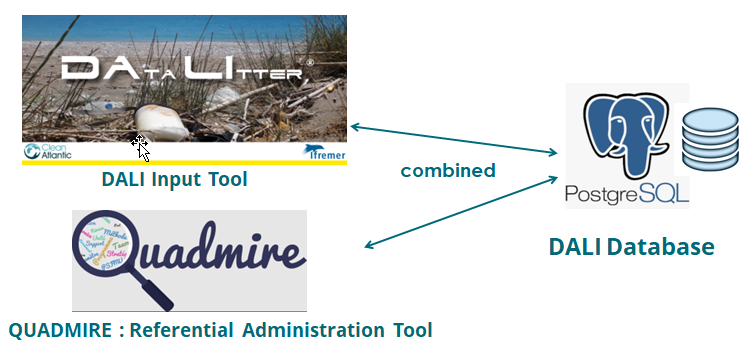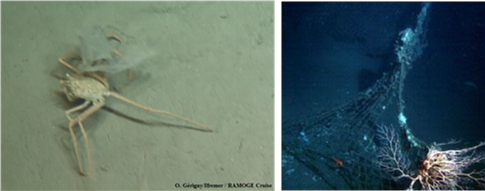Interview to Ifremer

Today we are interviewing Morgan Le Moigne from the Ifremer
Why did you join the CleanAtlantic project?
Answer: Ifremer is strongly involved in the implementation of MSFD Descriptor 10 – “Marine Litter”. Indeed, François Galgani is a pioneer in this thematic with first results of marine debris in 1996. He is actually co-chair in the Technical Group of Marine Litter and he is also involved in other working groups at European and international level.
To manage dataset collected during D10 MSFD monitoring programs on seafloor litter, floating litter, microplastics, litter ingested by Marine organisms, Ifremer developed an application dedicated to store all these datasets to facilitate their exploitation to produce the regulatory assessments. We wanted to share our experience in data management in the project CleanAtlantic by proposing to our partners to develop a database and associated tools. Indeed, this kind of data storage enables to keep them safe, sustainable and to have a common structuration that facilitates transmissions to other European/International Databases (DATRAS, EMODnet,…)
We wanted also to contribute in the development of new protocol for the observation of marine organisms entangled/strangled/covered by marine litter during ROV operations. The testing of this protocol is intended to support the implementation of the D10C4 indicator.
Finally, we wanted to contribute in improving knowledge by analyzing data acquired during monitoring programs on floating litter and meso/microlitter.
The IFREMER led the activities under the work package 5 on monitoring and data management. How did you experience that role in CleanAtlantic?
Answer: It was a really great experience to coordinate the huge and diverse works realized in this WP5 from technical developments (Database & apps) to new protocols and new knowledges on impact of cotton buds & butts and finally on marine litter as vectors of non-indigenous species. It was really interesting and I met some really nice people from partner Institutes.
What did you develop throughout the project? How did the project influence your work?
Answer: Our main activity in CleanAtlantic was to develop a database and tools associated to store data acquired during monitoring and research programs in Marine Litter thematic. At Ifremer, we have a long and strong experience on data management that we acquired with the implementation of monitoring networks to answer French regulations, WFD & the MSFD. This kind of data storage enables to keep them safe, sustainable and to have a common structuration that facilitates transmissions to other European/International Databases (DATRAS, EMODnet,…).
CleanAtlantic allowed us to know how the partners managed their data and to propose them an adapted solution. So, we developed the DALI PostGreSQL Database and the QUADMIRE referential tool to meet their expectations.

What is your best CleanAtlantic memory?
Answer: WP9! The joke of the CleanAtlantic team in reference to the good moments we had together after the meetings.
What did you learn from the project? How does inter-regional cooperation can foster the fight against marine litter according to you?
Answer: Thanks to this project, I was able to discover the practices of different institutes. It was enriching to share our experiences, our different knowledges with the same goal: tracking marine litter. The interregional cooperation is a key element to reach this objective as this pollution has no frontiers and unfortunately is not about to disappear.
What are the future activities your organisation is planning regarding marine litter?
Answer: Several projects are underway at Ifremer : Interreg projects : Preventing Plastic Pollution, INdIGO ; research projects on nano/microplastics…A main issue for the coming year is the D10 MSFD assessment. Finally, I wish a CleanAtlantic II to continue the work done in the first phase!

CleanAtlantic Ifremer team

Impacts due to entanglement and strangling on benthic invertebrate fauna – ROV images from Ramoge Campaign


 EN
EN ES
ES FR
FR